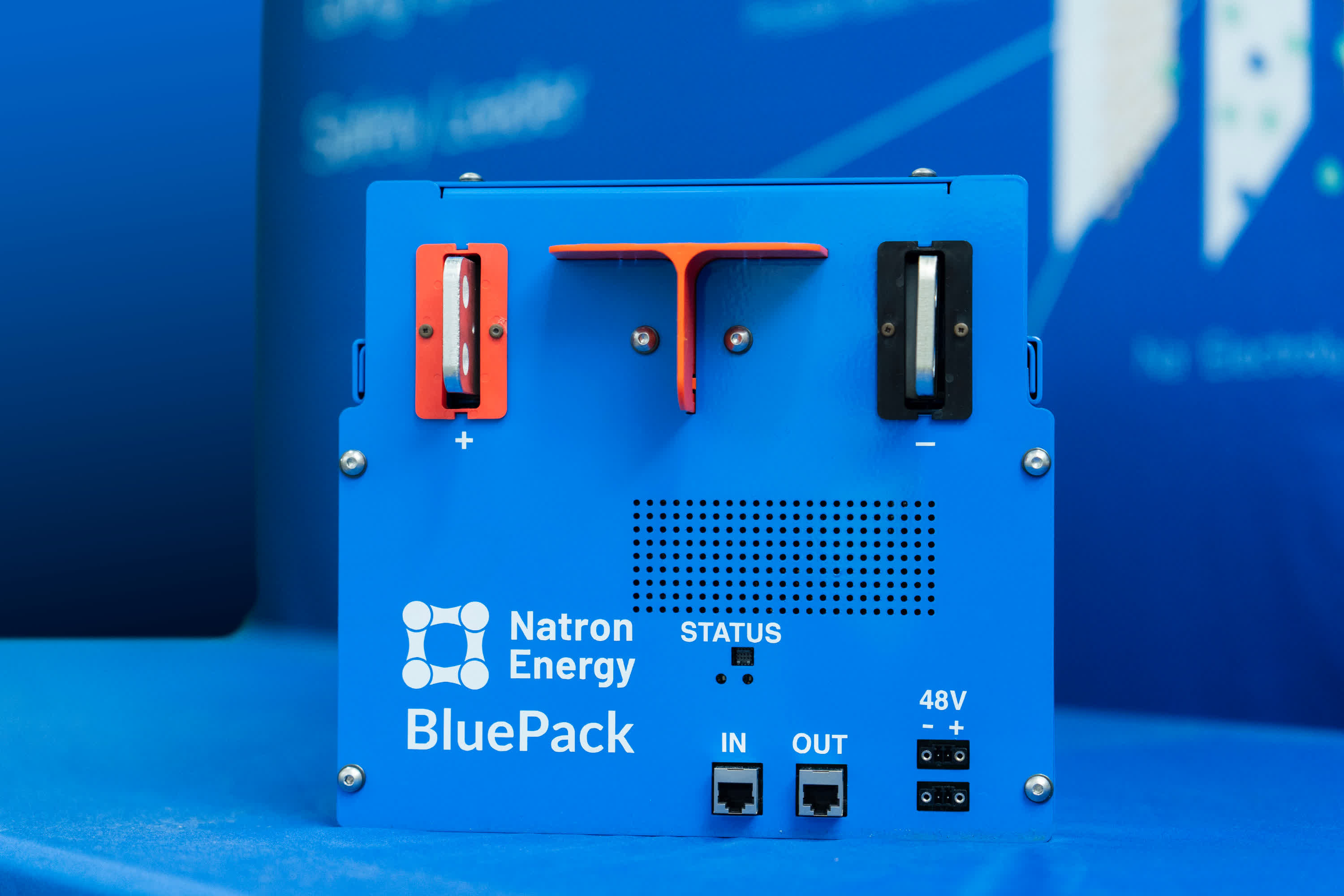Why it matters: Despite their generally lower energy densities, sodium-ion batteries offer compelling advantages over lithium-ion, including a longer cycle life and improved safety. Chinese companies have already begun using them for grid storage and even electric vehicles, but the US has lagged behind so far. Natron Energy, a sodium-ion battery manufacturer, is now on a mission to change that with a first-of-its-kind gigafactory for producing sodium-ion batteries on a massive scale.
Natron has announced that it will invest nearly $1.4 billion to construct a massive 1.2 million-square-foot facility in Edgecombe County, North Carolina. The factory, slated for the 437-acre Kingsboro site, will have an annual production capacity of 24 gigawatt-hours of the company's novel sodium-ion batteries once at full capacity – a 40-fold increase over the company's current output. The goal is to commercialize the technology stateside for markets such as data centers, electric vehicles, microgrids, and telecom installations.
Natron says it chose North Carolina for its "leadership in the clean energy revolution," after evaluating over 70 sites across nine states. The state also offered economic incentives, including a 12-year Job Development Investment Grant. The project is expected to create over 1,000 clean energy jobs in the area while also estimated to grow the state's economy by $3.4 billion.

Another reason why this project is unique is that Natron will be using readily available domestic materials like aluminum, iron, and manganese, instead of difficult-to-obtain materials like lithium, cobalt, and nickel.
Moving on to the technology itself, the company will use its patented Prussian blue electrodes to store sodium ions. This will help produce batteries with ultra-low internal resistance for 10x faster charging than lithium cells, meaning they could take less than 15 minutes to juice up to 100 percent. The unique chemistry also allows these cells to cycle over 50,000 times with zero performance degradation while doing away with any overheating risks.
Lithium producers have warned in recent years that the world could face a lithium shortage as soon as 2025. The metal has rapidly transitioned from a niche material for ceramics and pharmaceuticals to one of the most coveted resources on the planet in just a few decades. Sodium, on the other hand, is significantly more abundant – making it cheaper and easier to source. This means that Natron's investment in sodium-ion technology comes at a very opportune time.
